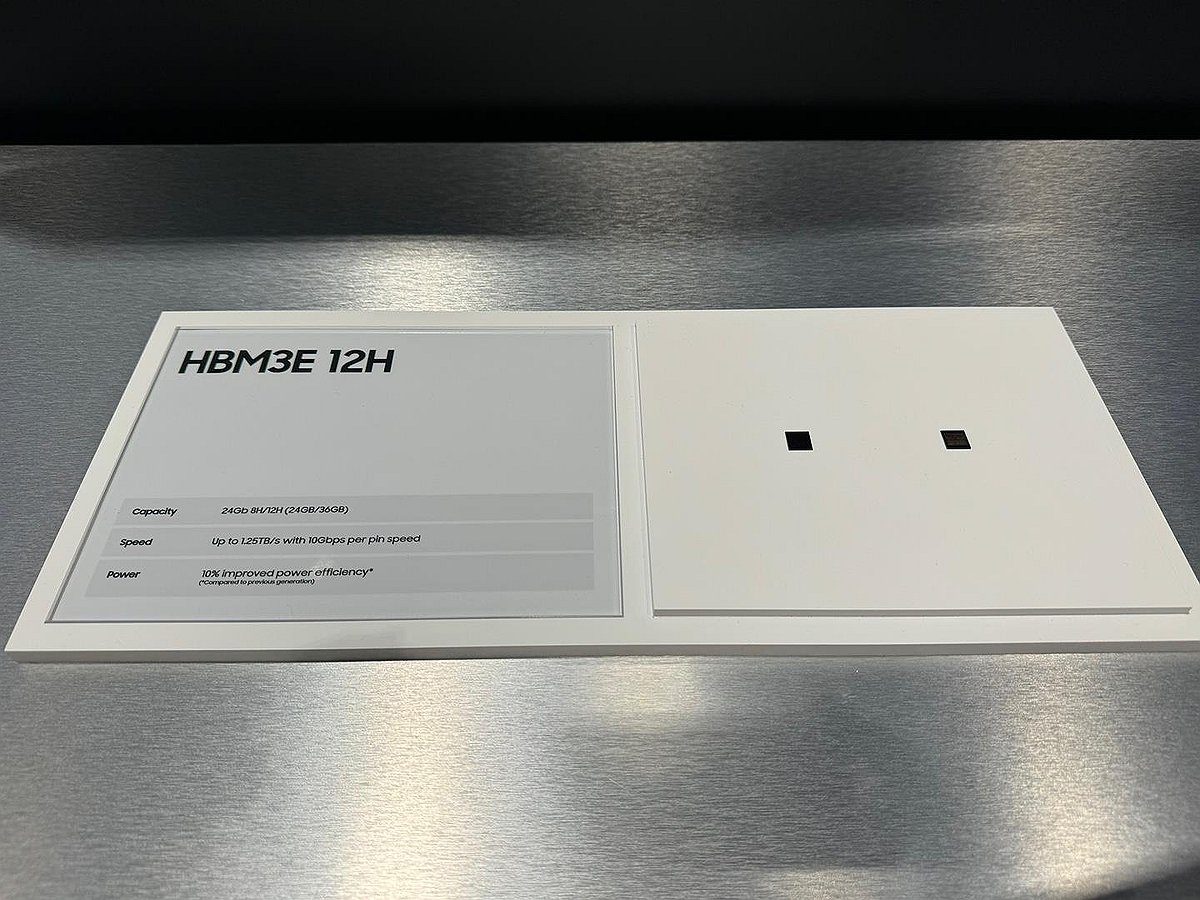 |
Samsung Electronics' fifth-generation HBM chips with 12 layers of DRAM (Samsung Electronics) |
Samsung Electronics, the world's No. 1 memory chipmaker, on Friday denied a report that its high bandwidth memory chips had yet to pass Nvidia's tests for use in the US chip giant's AI processors.
Samsung said testing for HBM supply is progressing "smoothly" with various global partners.
"We are currently working closely with multiple companies and continuously testing technology and performance,” the Korean tech giant said in a statement. “We are conducting various tests to thoroughly verify the quality and performance of HBM.”
Samsung said it was striving to improve quality and strengthen the reliability of all products to provide the best solutions to customers.
The rebuttal came as Reuters reported Samsung's latest HBM chips were failing Nvidia tests due to heat and power consumption problems, citing multiple sources on the same day.
"The problems affect Samsung's HBM3 chips, which are the fourth-generation HBM standard currently most used in graphics processing units for artificial intelligence, as well as fifth-generation HBM3E chips that the South Korean tech giant and its rivals are bringing to market this year," the report said.
HBM, or high-performance memory, are chips that increase data processing speed by vertically connecting multiple DRAM chips. Demand for them is rapidly increasing due to the recent expansion of the artificial intelligence market.
Samsung, which has ceded leadership of the HBM3 market, the 4th generation of HBM, to SK hynix, has been making every effort to dominate the next-generation HBM market by gathering top engineers from each business division since the beginning of this year.
On Tuesday, Samsung replaced its semiconductor chief from co-CEO Kyung Kye-hyun to Vice Chairman Jun Young-hyun amid a heightened AI race, showing a strong will to improve future competitiveness.
Samsung began initial mass production of eight-layer HBM3E chips last month and plans to mass produce 12-layer products within the second quarter.
Meanwhile, Samsung shares lost more than 3 percent on Friday following the Reuters report. The tech giant shares ended trading at 75,900 won ($55.44), down 3.07 percent on the nation's main bourse, Kopsi, from the previous session's close.







